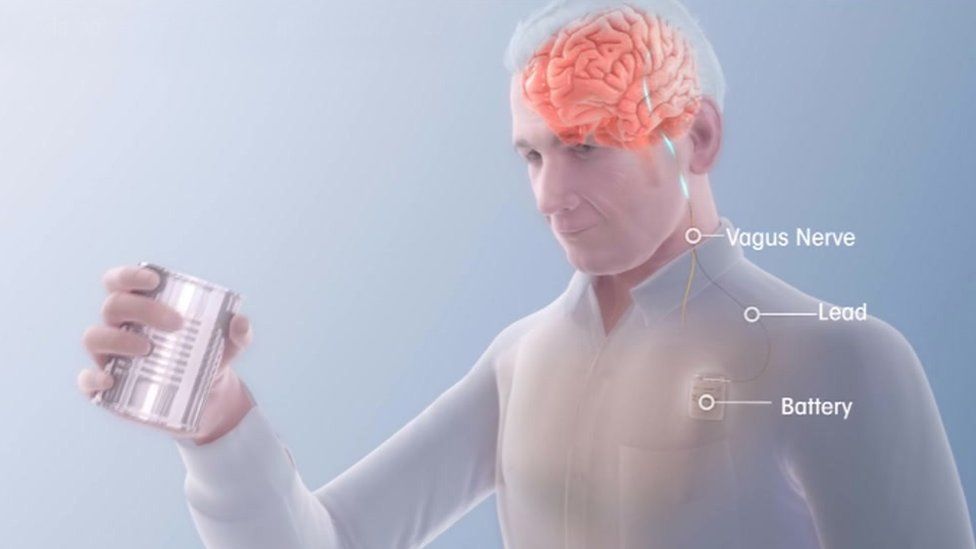Newcastle stroke treatment trial results 'phenomenal'
- Published

A stroke treatment trial has produced results that clinicians have described as "phenomenal".
An implanted device sends electrical pulses via a nerve to the brain, stimulating it to bypass damaged areas.
Colin Clough, who is on the trial, can now use his left hand which had been "dead" since his stroke a year ago.
Trial lead at Newcastle's Royal Victoria Infirmary, Dr Anand Dixit, said it was "a great hope for a group of patients where there wasn't any".
"We are seeing some phenomenal results," he said.
"I think, when we analyse the whole results, we are hoping to see that this is a very transformative intervention."
The trial aims to find a treatment specifically for stroke patients with arm and hand weakness.
Mr Clough said he had "given up" on his left hand and got used to using his right hand for everything.
"It was just dead, it belonged to someone else," he said.
He can now carry out tasks using both hands, such as carrying a tray and pouring water into a cup.
Stroke is the leading cause of disability and the fourth largest cause of death in the UK, according to NHS England.
More than half of survivors are left with a disability.
Patients on the trial have a device implanted that sends electrical signals over the damaged part of their brain to connect with another, healthy area.
They have physiotherapy and carry out repeated physical actions with the intention of helping their brain re-learn how to use the limb left weak by the stroke.
The trial involves patients in the UK and USA and is due to end next year.
Vagus Nerve Stimulation has already been used to treat people with epilepsy and depression.
- Published14 April 2019
- Published18 February 2019
- Published23 October 2018
- Published4 September 2018